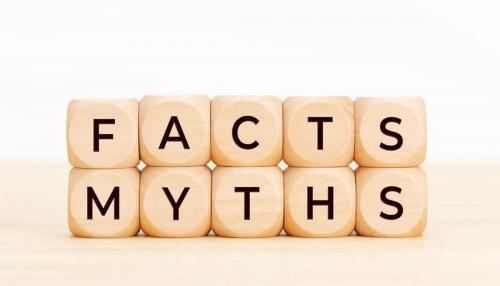In my 24 years in the reverse mortgage business I’ve learned that many seniors have postponed or decided not to set up a reverse mortgage because they have been given some MISCONCEPTIONS about reverse mortgages by:
- Their Spouse
- One of their children
- One of their brothers or sisters
- Their next door neighbor
- Their attorney
- Their accountant
- Their financial planner
- Their realtor
- Someone in their church
Please believe me when I tell you that there is absolutely nothing negative about the reverse mortgage program. The program is insured by the FHA/HUD and was developed by the FHA/HUD to help seniors and not to hurt them.
As of January 1, 2023 I will have approximately 300 reverse mortgage clients and not one of them is unhappy with their reverse mortgage. They all needed money for various reasons, and they used the reverse mortgage program to get the money they needed to enjoy their retirement years, improve their Quality of Life, and to have lots of Peace of Mind.
Please take the time to read the 17 Misconceptions about Reverse Mortgages 2 or 3 times that I will list here. I tell you what the Misconception Is and then I tell you what The Truth Is.
Now when you hear someone say something negative about reverse mortgages, you can tell them what The Truth Is.
MISCONCEPTIONS ABOUT REVERSE MORTGAGES
(Then I Tell You What The Truth Is)
“THE LENDER OR GOVERNMENT WILL TAKE MY HOME AFTER I DIE”
THE TRUTH: The homeowner remains the owner of the home, title does not change. After the homeowner dies, the heirs sell the home, pay off what is owed on the Reverse Mortgage, and all the remaining funds go to the children or their heirs.
“I OR MY HEIRS CAN OWE MORE THAN MY HOME IS WORTH”
THE TRUTH: The homeowner or their heirs can never owe more than the value of the home. This is a “Non-Recourse Loan”, your Reverse Mortgage will never leave you or your heirs in debt.
“REVERSE MORTGAGES ARE EXPENSIVE AND THE CLOSING COSTS ARE HIGH”
THE TRUTH: Expensive compared to what??? There is no other loan that you can compare a Reverse Mortgage to. Where else can a senior borrow 40% to 70% of their home’s appraised value, only spend $150.00 out of their pocket, and be able to live in their home as long as they want to with NO MORTGAGE PAYMENTS!!!
Reverse Mortgages are not expensive and the closing costs are very reasonable!!! In my 24 years in this business, I have never lost a loan because a Reverse Mortgage is expensive with high costs.
Note: The $150.00 that you would be required to spend out of your pocket is for the following:
* $150.00 for the required FHA “Phone Counseling Session”, which takes 45 minutes.
“I CAN BE FORCED TO MOVE OUT OF MY HOME”
THE TRUTH: The homeowner can stay in their home “FOREVER” as long as the property taxes and the homeowner’s insurance premiums are paid every year.
“I WOULD USE UP ALL OF MY HOME EQUITY, AND THERE WOULD BE NOTHING LEFT FOR MY CHILDREN OR THEIR HEIRS”
THE TRUTH: FHA/HUD has a “Principal Limit Formula” that permits the senior homeowner to use only a “Portion of The Home Equity” for the Reverse Mortgage. This means that there will be a substantial amount of home equity remaining for your children or their heirs.
“BOTH SPOUSES ON TITLE MUST BE 62 OR OLDER BEFORE THEY CAN SET UP A REVERSE MORTGAGE”
THE TRUTH: As of August 4, 2014, FHA/HUD amended the Reverse Mortgage Program to allow one of the spouses to be under age 62 and be designated as the “Non Borrowing Spouse”.
“IT WOULD COST LESS TO SELL MY HOME AND MOVE INTO A SMALLER HOME”
THE TRUTH: The real estate commissions and moving costs would be substantially higher than the cost to set up a Reverse Mortgage.
“A REVERSE MORTGAGE IS THE SAME AS A “HOME EQUITY LINE OF CREDIT”
THE TRUTH: Absolutely not true. There are five (5) major differences:
- You don't have to make any payments on a Reverse Mortgage “Line of Credit”
- You can make a pre-payment of any amount and there is no pre-payment penalty
- The Reverse Mortgage”Line of Credit” GROWS at the same interest rate as your Reverse Mortgage
- The Reverse Mortgage “Line of Credit” cannot be “Frozen” or “Cancelled”
- The Reverse Mortgage “Line of Credit” is insured by FHA and supervised by HUD
“IT’S TOO GOOD TO BE TRUE”
THE TRUTH: The HECM reverse program is 100% safe. It’s insured by the Federal Housing Administration (FHA), and supervised and administered by the U.S. Department of Housing and Urban Development (HUD). Reverse Mortgages were designed to be used as proactive planning tools to provide senior homeowners with money during their retirement years.
“MY REVERSE MORTGAGE PROCEEDS WILL AFFECT MY SOCIAL SECURITY BENEFITS”
THE TRUTH: A Reverse Mortgage will not affect your Social Security benefits.
“I WILL HAVE TO PAY INCOME TAXES ON THE MONEY I RECEIVE”
THE TRUTH: The money you receive is a loan, not income, and is not taxable.
“IF I WAIT FOR A FEW MORE YEARS, I WILL RECEIVE A LOT MORE MONEY”
THE TRUTH: The longer you wait, the more money you will lose and I can prove it! If you’re considering a Reverse Mortgage, the sooner you call me, the more money I can save you.
“MY CHILDREN WILL OBJECT IF I SET UP A REVERSE MORTGAGE”
THE TRUTH: In my experience, once the children understand how the reverse mortgage will help their parents financially and have their “Quality of Life” improved, they are 100% in favor of it.
“IF I HAVE AN EXISTING MORTGAGE, I CAN’T GET A REVERSE MORTGAGE”.
THE TRUTH: The existing mortgage is paid off with the available Reverse Mortgage funds.
“IF MY HOME IS IN A TRUST I CAN’T SET UP A REVERSE MORTGAGE”
THE TRUTH: You can do a Reverse Mortgage if your home is in a trust. Approximately 50% of my clients that I have set up a Reverse Mortgage for, have their home in a trust.
“THERE ARE A LOT OF RESTRICTIONS AS TO HOW I CAN USE THE MONEY”
THE TRUTH: You can use the money for anything that you need or want to do.
“IF I SET UP A REVERSE MORTGAGE, I WILL BE LOCKED IN AND NEVER BE ABLE TO MOVE TO ANOTHER HOME OR ANOTHER STATE”
THE TRUTH: You can move any time you want to. You just need to pay off the amount you owe on your Reverse Mortgage, and there is no pre-payment penalty.
Read on for additional reverse mortgage myths and facts.
Listed below are the common myths followed by the facts of reverse mortgages that will bring clarity and assist you in making the most informed decision.
Reverse Mortgage Myths and Facts

Myth: You immediately sign over ownership to your home.
Fact: You retain title to your home as long as you meet the loan guidelines and requirements such as: maintaining the property, paying all property charges such as property taxes, homeowners insurance, flood insurance, and homeowners association dues (if applicable), and avoiding extended absences from the home longer than six months.¹ As with any other mortgage, a lien is placed on the property to secure future repayment of the loan.
Myth: If you take out a reverse mortgage loan your children won't be left with any of the home equity.
Fact: While the amount of equity typically decreases over time with a reverse mortgage, it doesn't mean there will be no equity left when the last borrower dies. There are several factors that go into how much equity will be left, such as home appreciation, length of the loan, and optional monthly payments. There can still be equity left for your children.
Myth: Your children will be responsible for repaying the loan when you die
Fact: A reverse mortgage is a non-recourse loan, meaning that the lender can only be repaid from the proceeds of the sale of the home and not more than the value of the home. That means even if the home decreases greatly in value, the maximum repayment amount can only be up to the value of the home. While your heirs will not be responsible for the loan repayment, they will still have the option to refinance the loan to purchase it for themselves.
Myth: A reverse mortgage requires that you make monthly mortgage payments.
Fact: While you can choose to make mortgage payments, they are not required with a reverse mortgage. The borrower is still responsible to maintain the property, pay property taxes, homeowners insurance, flood insurance, and homeowners association dues (if applicable).¹
Myth: You must have your first mortgage paid off before you can qualify for a reverse mortgage.
Fact: While any debt on your home's title must be paid off at closing and you must have adequate equity in the property, it is not required that you own your home "free and clear" before getting a reverse mortgage.
Myth: You are not allowed to sell your home if you have a reverse mortgage.
Fact: You can sell your home if you wish and - just like any other mortgage loan - you must pay off the reverse mortgage at closing. There are also no prepayment penalties if you choose to pay off your loan early or make loan payments.
Some Additional HECM Loan / Reverse Mortgage Loan Facts
- Many retirees use a reverse mortgage.
- A reverse mortgage allows older homeowners to access a portion of the value of their home.
- A reverse mortgage is a specialized loan for homeowners 62 and older.
- A reverse mortgage is eligible only for the borrower’s primary or principal residence.
- Reverse mortgages that are FHA-insured (Home Equity Conversion Mortgages) are insured by the Federal Housing Administration providing protection for both borrowers, lenders and beneficiaries.
- HUD counseling (from an independent HUD-approved third-party counselor) is required prior to the borrower incurring any costs associated with the loan.
- The cash or proceeds you receive from a reverse mortgage typically are not subject to individual income taxation. However, we suggest you consult your tax advisor to provide guidance for your particular situation.²
- It is not a government grant, but a loan that is repaid in the future when the home is sold, the last borrower dies or permanently leaves their residence, or the loan terms are not complied with.²
- Reverse mortgage proceeds could affect government needs-based programs such as Medicaid and Medi-Cal. Those receiving such benefits should consult a professional before obtaining a reverse mortgage.
- A reverse mortgage loan is secured by a mortgage on the home and failure to comply with loan terms could result in foreclosure.
- It’s a specialized loan. However, program rates, fees, terms, and conditions are not available in all states and are subject to change.
¹There are some circumstances that will cause the loan to mature and the balance to become due and payable. The borrower is still responsible for paying property taxes, homeowner’s insurance and maintaining the property to HUD standards. Failure to do so could make the loan due and payable. Credit is subject to age, income standards, credit history, and property qualifications. Program rates, fees, terms, and conditions are not available in all states and subject to change.
²Borrowers should seek professional tax advice regarding reverse mortgage proceeds.



